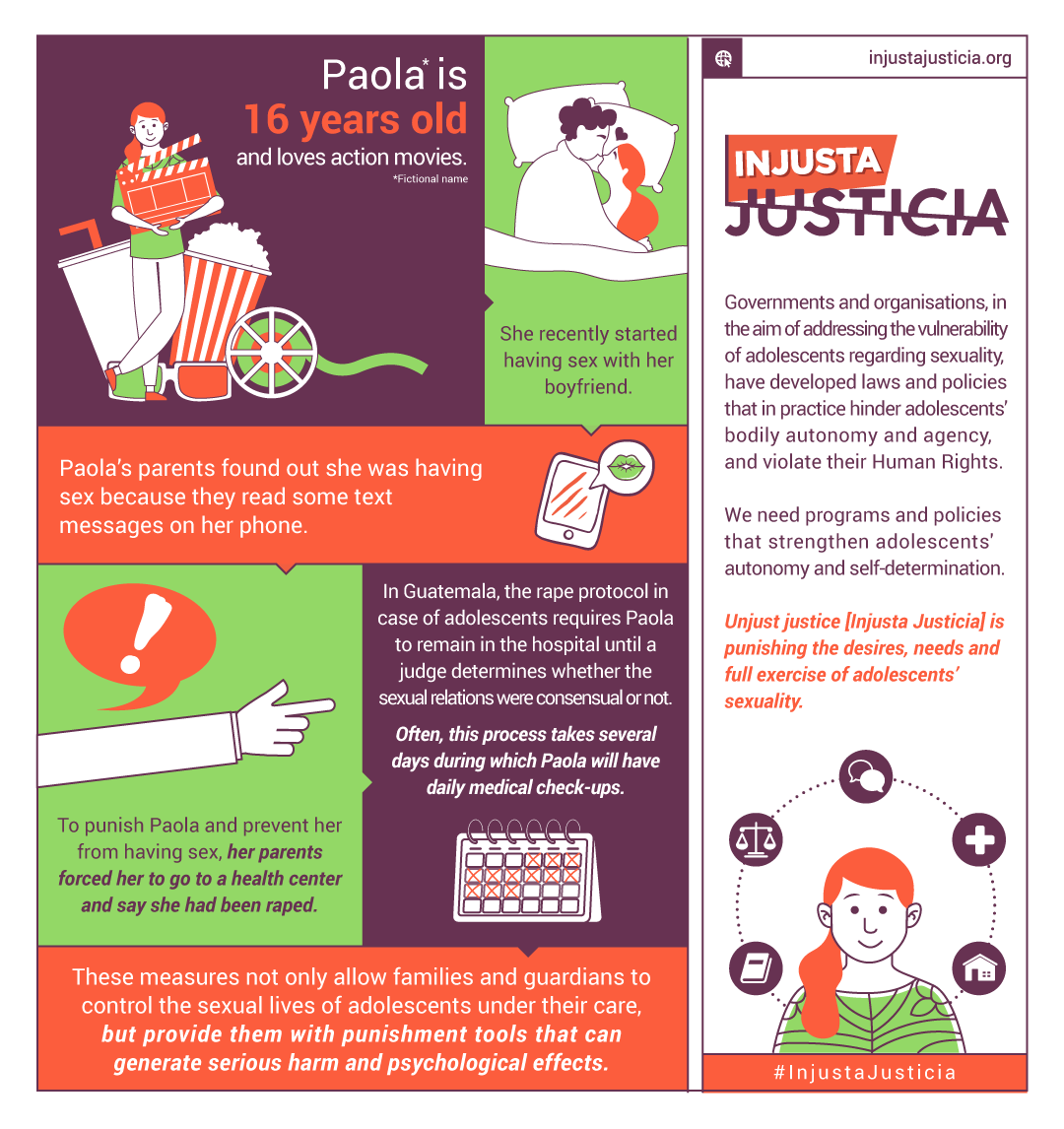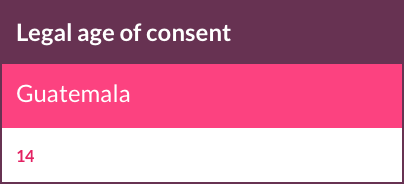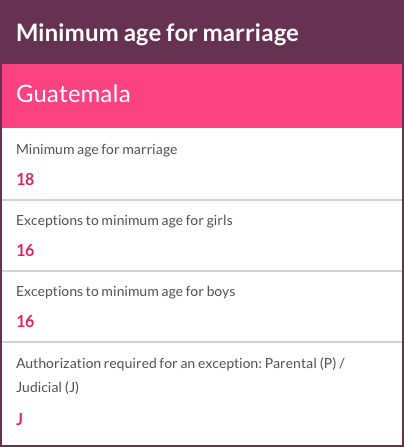Paola
Click here to get a full description of the infographic.

The Care Protocol for Victims and Survivors of Sexual Violence (Protocolo de Atención y Víctimas y sobrevivientes de violencia sexual de Guatemala) sets forth that it is mandatory in cases of sexual abuse of girls or adolescent women to file a complaint and to have a District Attorney, Inspector General and/or Justice of the Peace present at the hospital or health center as part of the procedure.
In rural Guatemala, it is common for judges to take a few days to get to hospitals and health centers. As a consequence, these girls and adolescent women are confined until the judge arrives. Since it is customary for them to stay for days – or even weeks – at the hospital, this procedure has been perceived as a form of punishment. Fathers, mothers, and legal guardians of adolescent women use this procedure – forcing their daughters to say they were victims of rape – to punish them for having sexual relations.
Cases like Paola’s have become common in rural and remote areas where access to public services and justice is limited.

- It’s necessary to create and implement comprehensive sex education programs to address issues of sexuality while preserving adolescents’ progressive autonomy. Comprehensive sex education programs must include adolescents’ parents and caretakers to break down the stigma and taboo around sexuality. This would then prevent misuse of the criminal procedure – such as the protocol for victims of rape in this case – as “punishment” for the decisions made by adolescents about their sexuality.
- Protocols adapted to reality: When creating protocols, the distance and the available number of judges and public officials must be taken into consideration to avoid obstructing procedures. Even though this measure was created with the good intention of guaranteeing an effective investigation process, the limitations on its application have a disproportionate adverse effect on girls and adolescents.
- States must modify the way they approach sexual and reproductive rights. It is, therefore, necessary to avoid practices that prioritize punitivism and focus on bringing perpetrators to justice. It is essential, instead, to strengthen and invest in prevention of sexual and reproductive rights violations, consequently modifying gender stereotypes and reducing violence towards girls, adolescents and women.
- It is necessary for civil society organizations to deepen their discussions and work together, thus strengthening the guarantee and exercise of girls and adolescents’ progressive autonomy.
The Injusta Justicia campaign seeks to promote reflection on the limits of criminal law and punitivism as a defense strategy for sexual and reproductive rights, particularly those of adolescents. The campaign aims, among other things, to put the unforeseen consequences of the unrestricted application of criminal regulations and the impact this has on the autonomy and lives of adolescents under the spotlight. Injusta Justicia doesn’t have – or presume to have – all the answers but intends to inspire debate and to have the conversations we need as feminists to propose transforming strategies and alternatives focused on the survivors. We invite you to take part in this discussion.
Sexual and reproductive rights policy and regulatory framework in Guatemala:
Policies that could have an impact on the lives of adolescents in the region:
